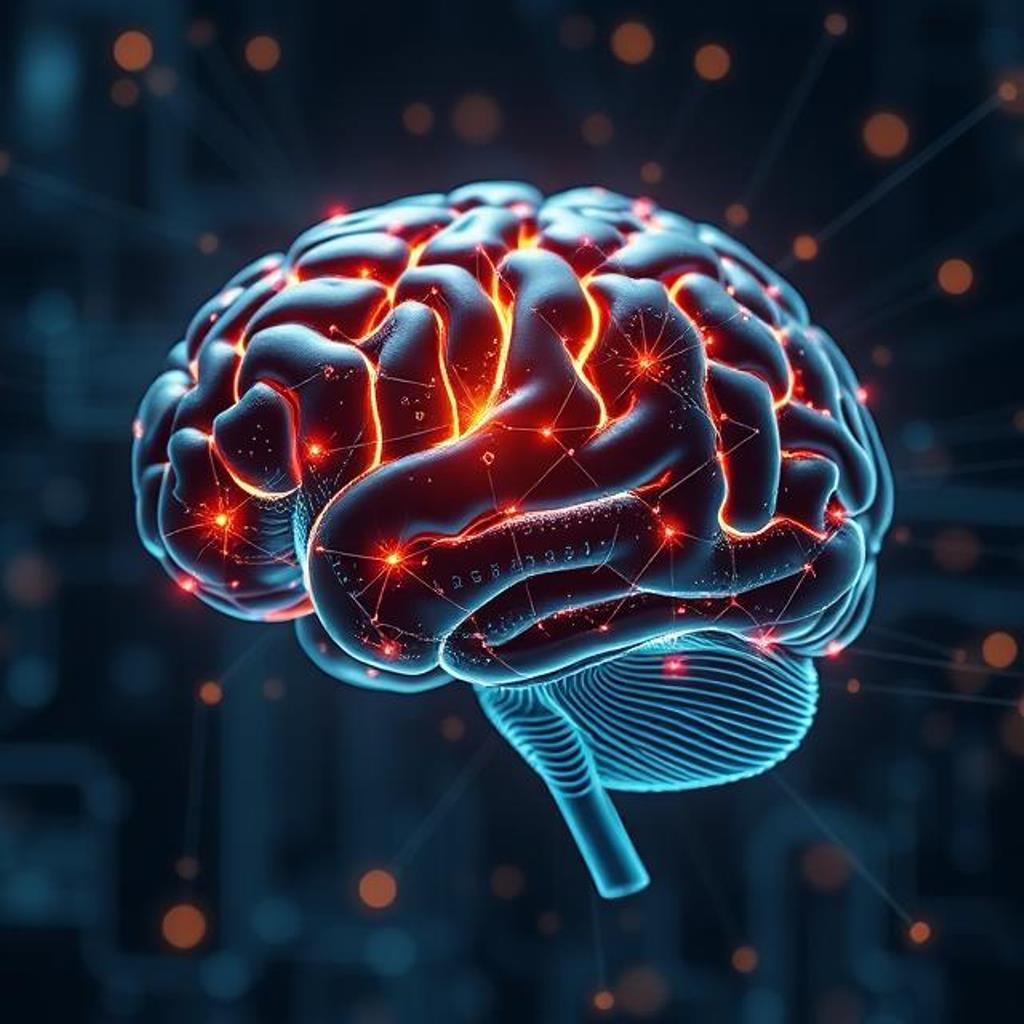
The Brain on AI: Learning’s Psychological Impact
There is a quiet coup in the architecture of the human brain. Unannounced, artificial intelligence has emerged as our reluctant, yet unavoidable, learning friend. It whispers softly in our ear, anticipates our question, and defines learning paths with a consistency no human teacher could possibly achieve.
This emerging mental ghost of the machine is not just changing what we know, it is actually re-mapping blueprints for how we think. The revolution is subtle, close, and its beat is gradual. We are compelled to ask a tough question: as our brains integrate with these powerful new tools, who are we becoming?
The direction of this transformation is in the brain's mind-bending capacity to change itself—its neuroplasticity. Our brain networks continued to adapt to the implements we used, from the pointed-flint to the written letter.
That implement today is an algorithm. Cognitive neuroscience reveals a brain challenged continuously by AI does not merely work more; it works differently. It provokes a process of revolutionary reorganization, constructing what can perhaps be called a hybrid mind structure. In the new paradigm, the brain learns to outsource.
The hard labor of memorizing by rote, of having enormous amounts of information at one's command, is outsourced to the digital sidekick now.
It is not memory loss but a vivacious reshuffling of mental energy. The brain, knowing the omnipresent availability of information outside, diverts its focus away from being a storehouse of knowledge to that of a higher-order mapmaker of it. Dr. Elena Rodriguez's writing shows that we are trading an encyclopedic memory for a connective intelligence.
The new value is not in what you can recall, but in the types of questions that you can ask, in your ability to swim through vast sea tanks of information, and to pull together loose strands of knowledge into a serviceable garment of understanding. The mind is transforming from a walking library to an expert librarian.
This rewiring makes our spine shudder with our most primitive intellectual tendencies. Consider our attention. We are building what researchers refer to as "adaptive distributed attention," a seamless, fluid attention that can switch between human cues, screen stimuli, and our minds. It is a mind properly attuned to an information-overloaded society. But this adaptability is not cheap.
The ability for intense, prolonged, and linear focus—the type of active attention needed for thoughtful consideration and difficult problem-solving—is in decline. Most students who study in this environment discover that they are suffering more internal static, having trouble quieting the mind on a topic, a state fittingly "AI-induced cognitive fragmentation."
A similar paradox occurs in critical thinking. The fear that our capacity to analyze will decline under the malevolent gaze of AI is maybe slightly naive. If it is conceivable to build an AI to make its own logical procedures transparent, then it can function as a "cognitive scaffold," an open-ended companion whose acts we can observe, learn from, and monitor. It can imitate intense analysis.
The danger is the other side of this coin: becoming dependent on "algorithmic dependence." When the AI is a black box that simply delivers answers, intellectual lethargy is bred. We lose our mental toughness, our readiness to struggle with a problem and beat one out with our own minds.
The emotional context of learning is also being transformed. The precisely tailored obstacles of an adaptive AI can put one into a state of "flow," a state of ecstatic engagement where motivation peaks. But the same system can evoke a new and subtle kind of stress: "algorithmic performance anxiety." The student is no longer compared with peers, but with an emotionless, ever-optimized ideal, a model of perfection that can be as motivating as it is overwhelming.
Even worse are the potential consequences for our emotional and social intelligence. A brain trained virtually every waking moment of the day by interactions with machines may struggle to learn the sloppy, ephemeral syntax of human feeling.
Prospects for development during early childhood, in particular, may be lost, leading to reduced ability to read the faint, non-verbal cues which underlie genuine human connection. This is so profoundly a problem that it is giving rise to a new generation of AI, one that simulates social behavior and emotional intelligence—a technologically-born answer to humanly created problem. Perhaps most intriguing of all the consequences of this hybridization is the altering conception of self.
Today's youngsters no longer have a cut-and-dried separation of their own mind and their computer aiding technology. The AI is an extension of their own mind, a prosthetic mind. It makes for a "hybrid cognitive identity" and demands a reconceptualization of what intellectual autonomy ever was.
Is it the isolationist authority of unaided intellect, as philosophers such as Martha Nussbaum would assert, or more a new executive capacity of mobilizing effectively a vast cognitive network of resources organic and synthetic? In order to chart this new ground, we don't need the rejection of technology, but the creation of a new type of wisdom.
We need to acquire an "augmented metacognition," an active, intentional sense of the way we are combining our minds with those of our machines. This takes frictional activity—the self-control of "slow learning" and frequent "cognitive disconnection" in order to create safe zones of solo contemplation. It urges us to balance the quick gratification of an AI's answer with the rich, hard-won understanding that only develops through adversity.
And above all, it challenges us to cultivate "meta-AI competence," an awareness about how these algorithms are built, where they fail, and how their reasoning builds the information they provide. We are at the crossroads, where we have the responsibility to guide the co-evolution of man and machine intelligence.
Not just to utilize AI, but to converse with it in a "conscious cognitive symbiosis," where this formidable partnership is used to strengthen our most human qualities—our imagination, our sense of right and wrong, our emotional depth—rather than to undermine them. Whatever we find ourselves experiencing in this interaction will define the intellectual life of generations to come.









